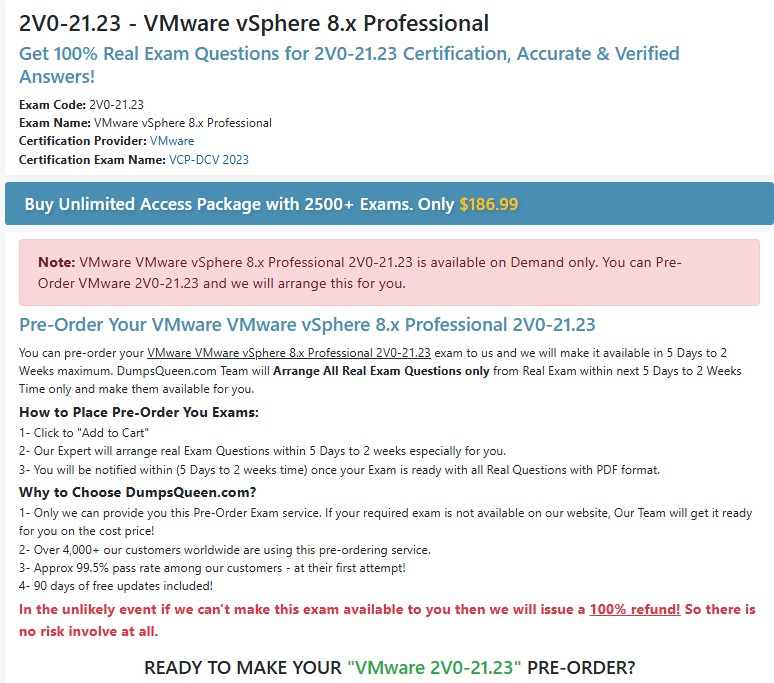Introduction
In the ever-evolving world of technology, understanding the various computing models is critical for professionals, students, and enthusiasts alike. One common question that arises in this domain is: What term describes a computing model where server software runs on dedicated computers? The answer lies in a concept known as dedicated hosting. This computing model has become a cornerstone for businesses and individuals seeking reliable, high-performance solutions for their online presence. At DumpsQueen, we aim to provide comprehensive insights into such technical concepts to empower our audience with knowledge that drives success. This blog delves into the intricacies of dedicated hosting, its significance, applications, and why it remains a preferred choice in today’s digital landscape.
Understanding Dedicated Hosting
Dedicated hosting refers to a computing model where an entire physical server, including its hardware and resources, is allocated exclusively to a single user or organization. Unlike shared hosting, where multiple users share the same server’s resources, dedicated hosting ensures that the server software runs on dedicated computers tailored to meet the specific needs of the client. This exclusivity provides unparalleled control, performance, and security, making it a popular choice for businesses with high-traffic websites, complex applications, or sensitive data.
At its core, dedicated hosting is about customization and resource allocation. The server is not partitioned or virtualized for multiple users; instead, it is wholly devoted to one client. This means the client has full access to the server’s CPU, RAM, storage, and bandwidth, enabling them to configure the server environment to their exact specifications. DumpsQueen recognizes the importance of such flexibility, especially for those preparing for IT certifications or managing enterprise-level projects, as it ensures optimal performance and reliability.
Why Choose Dedicated Hosting?
The decision to opt for dedicated hosting is often driven by the need for enhanced performance, security, and control. Let’s explore these aspects in detail:
Performance and Scalability
Dedicated hosting offers superior performance because the server’s resources are not shared with other users. This is particularly beneficial for websites or applications that experience high traffic volumes or require significant computational power. For instance, e-commerce platforms, gaming servers, or data-intensive applications like machine learning models benefit greatly from the uninterrupted access to resources provided by dedicated servers.
Scalability is another key advantage. As a business grows, its computing needs evolve. With dedicated hosting, users can easily upgrade hardware components, such as adding more RAM or increasing storage capacity, without the limitations imposed by shared environments. DumpsQueen emphasizes the importance of scalability for professionals studying for certifications like CompTIA, Cisco, or AWS, as understanding scalable infrastructure is a critical component of modern IT roles.
Security and Compliance
Security is a top priority for any organization, especially those handling sensitive data such as financial records, customer information, or intellectual property. Dedicated hosting provides a secure environment because the server is isolated from other users. This reduces the risk of data breaches caused by vulnerabilities in other users’ applications or misconfigured settings.
Moreover, dedicated hosting allows businesses to implement custom security measures, such as firewalls, intrusion detection systems, and encryption protocols, tailored to their specific needs. For industries subject to strict regulatory requirements, such as healthcare (HIPAA) or finance (PCI-DSS), dedicated hosting ensures compliance by providing a controlled environment. At DumpsQueen, we understand the significance of security in IT operations, and our resources are designed to help professionals master these concepts for their certifications and careers.
Control and Customization
One of the standout features of dedicated hosting is the level of control it offers. Clients have root or administrative access to the server, allowing them to install custom software, configure operating systems, and optimize server settings. This level of customization is invaluable for developers and IT administrators who need to create bespoke environments for their applications.
For example, a company running a specialized database application might require a specific version of MySQL or PostgreSQL, along with optimized server configurations to maximize performance. Dedicated hosting makes this possible, unlike shared hosting, where users are restricted to predefined settings. DumpsQueen’s mission is to equip IT professionals with the knowledge to leverage such control effectively, ensuring they can manage and optimize dedicated servers with confidence.
Applications of Dedicated Hosting
Dedicated hosting is versatile and caters to a wide range of use cases. Below are some of the most common applications:
High-Traffic Websites
Websites with significant traffic, such as news portals, online retailers, or social media platforms, require robust infrastructure to handle large numbers of simultaneous users. Dedicated hosting ensures that these websites remain responsive and reliable, even during traffic spikes. For instance, an e-commerce site hosting a flash sale can rely on a dedicated server to process transactions seamlessly, preventing downtime or slow load times that could deter customers.
Enterprise Applications
Large organizations often rely on dedicated hosting for their enterprise applications, such as customer relationship management (CRM) systems, enterprise resource planning (ERP) software, or internal collaboration tools. These applications demand high performance, security, and uptime, all of which are guaranteed by dedicated servers. DumpsQueen’s study materials often cover the infrastructure behind such applications, helping IT professionals understand how to deploy and manage them effectively.
Gaming Servers
Online multiplayer games require low latency, high bandwidth, and reliable uptime to provide a seamless gaming experience. Dedicated hosting is the go-to solution for game developers and communities hosting private servers for games like Minecraft, Counter-Strike, or World of Warcraft. The dedicated resources ensure smooth gameplay, even with dozens or hundreds of players connected simultaneously.
Data Backup and Storage
Dedicated servers are also used for data backup and storage solutions. Businesses can configure dedicated servers as centralized repositories for critical data, ensuring redundancy and quick recovery in case of data loss. With the ability to implement advanced backup protocols and encryption, dedicated hosting provides a secure and reliable solution for data management.
Dedicated Hosting vs. Other Computing Models
To fully appreciate dedicated hosting, it’s essential to compare it with other computing models, such as shared hosting, virtual private servers (VPS), and cloud hosting.
Dedicated Hosting vs. Shared Hosting
Shared hosting is the most cost-effective option, as multiple users share the same server’s resources. However, this comes at the expense of performance, security, and control. In shared hosting, a single user’s misconfigured application or traffic spike can affect others on the same server. Dedicated hosting eliminates these risks by providing an isolated environment, making it ideal for businesses with specific performance or security requirements.
Dedicated Hosting vs. VPS Hosting
A virtual private server (VPS) is a middle ground between shared and dedicated hosting. In VPS hosting, a physical server is partitioned into multiple virtual servers, each allocated to a different user. While VPS offers more control and resources than shared hosting, it still involves sharing the underlying hardware. Dedicated hosting, on the other hand, provides exclusive access to the entire server, ensuring maximum performance and flexibility.
Dedicated Hosting vs. Cloud Hosting
Cloud hosting has gained popularity due to its scalability and pay-as-you-go pricing model. In cloud hosting, resources are distributed across multiple virtual servers in a cloud infrastructure, allowing for dynamic allocation based on demand. While cloud hosting excels in flexibility, dedicated hosting remains superior for applications requiring consistent performance, high security, or specialized hardware configurations. DumpsQueen’s resources often highlight these differences, helping IT professionals choose the right hosting model for their needs.
Challenges of Dedicated Hosting
While dedicated hosting offers numerous benefits, it’s not without its challenges. Understanding these limitations is crucial for making informed decisions.
Cost
Dedicated hosting is significantly more expensive than shared or VPS hosting due to the exclusive use of hardware. For small businesses or individuals with limited budgets, the cost of dedicated hosting may be prohibitive. However, for organizations with high-performance needs, the investment is often justified by the enhanced reliability and security.
Technical Expertise
Managing a dedicated server requires a certain level of technical expertise. Tasks such as server setup, software installation, security configuration, and maintenance can be complex, especially for those without experience in server administration. Many hosting providers offer managed dedicated hosting services, where they handle these tasks on behalf of the client, but this comes at an additional cost.
Scalability Limitations
While dedicated hosting is scalable to an extent, it is less flexible than cloud hosting. Adding resources to a dedicated server often requires hardware upgrades or migration to a new server, which can involve downtime. Cloud hosting, by contrast, allows for near-instant scaling by redistributing resources across the cloud infrastructure.
How DumpsQueen Supports Your IT Journey
At DumpsQueen, we are committed to helping IT professionals and students succeed in their careers by providing high-quality study materials and resources. Whether you’re preparing for certifications like CompTIA, Cisco, AWS, or Microsoft, understanding computing models like dedicated hosting is essential. Our platform offers practice exams, study guides, and detailed explanations to help you master these concepts and apply them in real-world scenarios.
By exploring topics like dedicated hosting, you gain a deeper understanding of the infrastructure that powers modern businesses. DumpsQueen’s resources are designed to bridge the gap between theoretical knowledge and practical application, ensuring you’re well-equipped to tackle the challenges of the IT industry.
Conclusion
Dedicated hosting, the computing model where server software runs on dedicated computers, is a powerful solution for businesses and individuals seeking performance, security, and control. By providing exclusive access to server resources, it caters to a wide range of applications, from high-traffic websites to enterprise software and gaming servers. While it comes with challenges like cost and technical complexity, the benefits often outweigh the drawbacks for those with specific needs.
At DumpsQueen, we believe that understanding concepts like dedicated hosting is key to thriving in the IT industry. Our platform is dedicated to empowering you with the knowledge and skills needed to excel in your certifications and career. Whether you’re a seasoned professional or just starting, DumpsQueen is your trusted partner in navigating the complexities of technology.
Free Sample Questions
-
What is the primary characteristic of dedicated hosting?
a) Multiple users share the same server resources
b) Server software runs on dedicated computers for a single user
c) Resources are distributed across a cloud infrastructure
d) Virtual servers are created on shared hardware
Answer: b) Server software runs on dedicated computers for a single user -
Which of the following is a key benefit of dedicated hosting?
a) Low cost compared to shared hosting
b) Enhanced performance due to exclusive resource allocation
c) Automatic scalability without hardware upgrades
d) Minimal control over server configurations
Answer: b) Enhanced performance due to exclusive resource allocation -
Which industry is most likely to use dedicated hosting for compliance reasons?
a) Retail
b) Healthcare
c) Education
d) Entertainment
Answer: b) Healthcare -
What is a potential challenge of dedicated hosting?
a) Lack of security features
b) High cost compared to other hosting models
c) Inability to customize server settings
d) Sharing resources with multiple users
Answer: b) High cost compared to other hosting models



